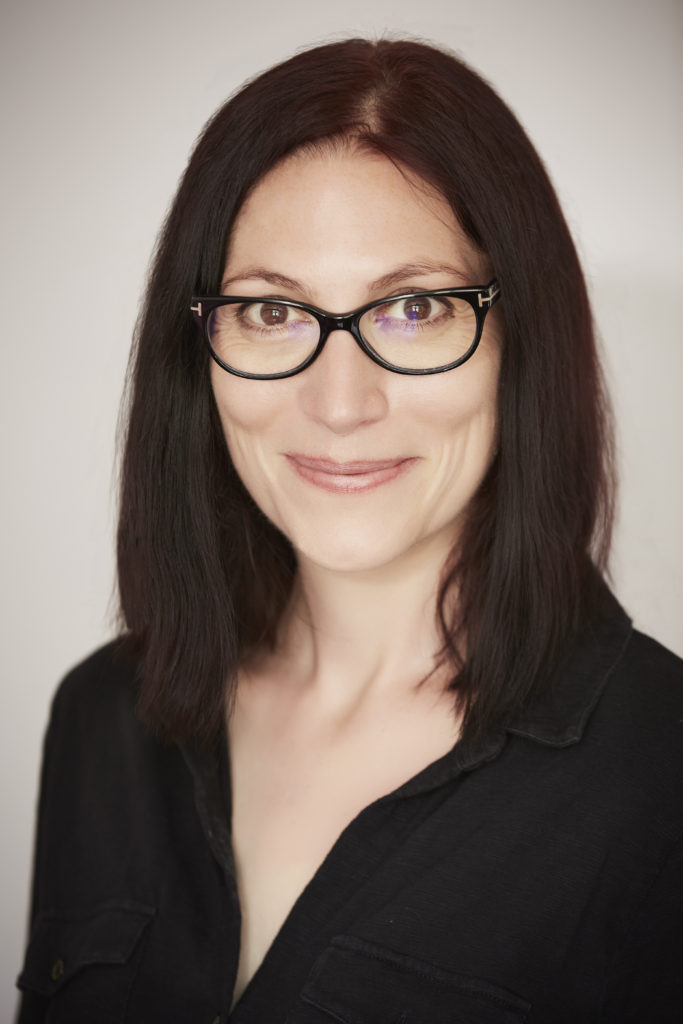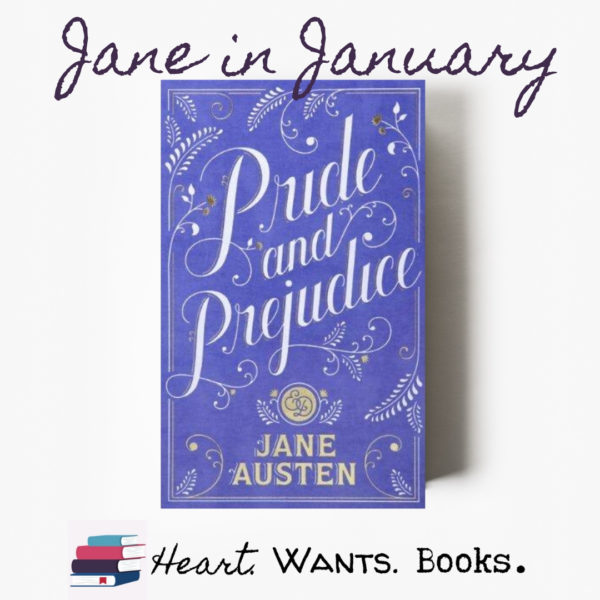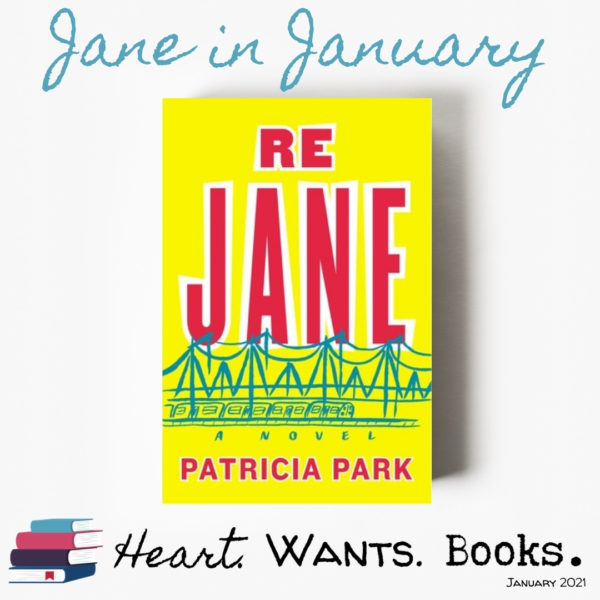A Thousand Ships by Natalie Haynes May 13, 2021
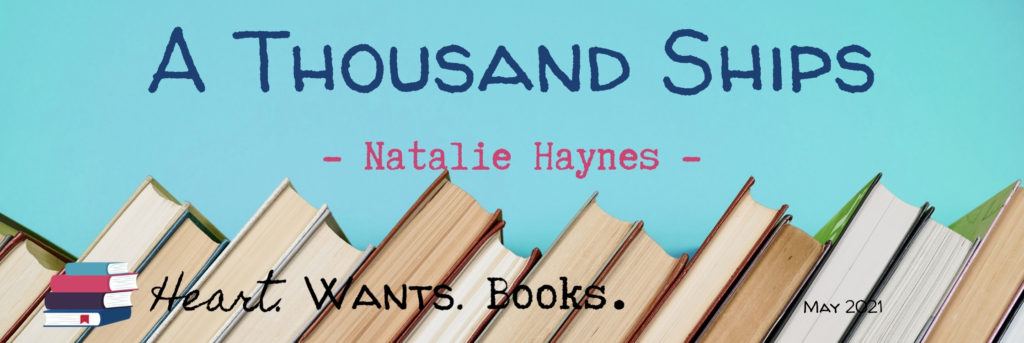
The following post includes affiliate links. More details here. As you’re doing your Amazon shopping, we’d be ever so grateful if you’d use our affiliate link to do so as it helps pay the bills around here!

Some days, you just need a broody, atmospheric novel, like today. Other days, you need something that is, at least on the surface, light, fun, and … dare I say…fluffy? Us too, and virtual book club as well! Since June says summer, and summer says beach read, what better book to read together than Emily Henry’s Beach Read! SIGN UP HERE to join us on June 18th at 7:30pm Central Time to discuss this romance about writers, because books about book lovers might be our favorite type of book.
Oh readers, I SO wish I remembered how A Thousand Ships by Natalie Haynes got on our TBR list, so I could go back there to see what else I can find to add. I’m hopeful Ashley’s memory is better than mine. This is a “woman’s epic” retelling of the Iliad and the Odyssey and the circumstances around those events. The basics of the tale are the same, but Haynes shares a series of different perspectives that remind me of the reframing in Madeline Miller’s Circe (whose endorsement is on the cover, if that helps push you into putting this on your holds list ASAP).

The story I didn’t know I needed in A Thousand Ships is Calliope’s. She is the muse of epic poetry and interjects periodically, breaking the fourth wall, as she speaks to readers of her struggles to inspire this poet, and she’s delightfully grumpy about it. “How much epic poetry does the world really need?” is not a question one expects the muse of epic poetry to ask, but she does. Calliope understands and acknowledges the realities of war, and she wants that for her poet and his readers. She wants them to also understand and acknowledge that “this is the women’s war, just as much as it is the men’s, and the poet will look upon their pain – the pain of the women who have always been relegated to the edges of the story, victims of men, survivors of men, slaves of men – and he will tell it, or he will tell nothing at all.” I cannot express how much I adore that it is now mainstream for books to share perspectives that were deemed unworthy of effort for centuries. Please ma’am may I have another?
Another piece I especially loved that I didn’t expect to find, much less enjoy, in A Thousand Ships is the way Penelope’s story is told. If you don’t remember, Penelope is waiting for Odysseus to come home, especially after the end of the Trojan War, and spends her days weaving his father’s funeral shroud and promises to consider her many suitors after it’s done, which isn’t likely as she undoes her weaving each night. Penelope speaks for herself, telling the story of her struggles, the pieces of Odysseus’s part in the war and his adventures on the way home that made their way to her ears, through letters to Odysseus. She doesn’t know if he’ll ever read these letters, but she pours out her heart on the page and I cannot express how much I loved finally reading a focus on Penelope while Odysseus was “trying” to get home to her.
The star of A Thousand Ships though, it’s the writing and the way the story is told. There are multiple narrators, each with a different style, and they are all at different time periods in the retelling of two epic poems. Readers do need to pay attention to who is leading each chapter, which is not my favorite, but it works. Because this is such a familiar story it’s not a challenge to keep up (except when I texted Ashley one night and asked her WTH was going on – she kindly reminded me there were multiple timelines happening and I was just mentally in the wrong one – so perhaps it is a challenge at times).
Now it’s confession time, dear readers. I haven’t finished reading A Thousand Ships yet, so I’m withholding a star rating and encourage you to friend me on Goodreads if you want to see how that shakes down in the next day or two. So far, I am really loving this title. I don’t know that I’ll reread this book, but I am highly likely to dig into Haynes’s backlist. If you enjoy the classics or retellings of them, I’d highly suggest A Thousand Ships for you!
What’s a classic story you might enjoy more from another perspective?
~Nikki
A Thousand Ships probably arrived on our/my radar when I was doing the book and author research for Angie Cruz’s Dominicana earlier this year because both Dominicana and A Thousand Ships were shortlisted for The Women’s Prize for Fiction in 2020. We were in the planning stages for Mythology in May at the time and this title seemed too good to pass up! (I was right about that…) Natalie Haynes is an English broadcaster and journalist known for her love of the Classics. Her BBC Radio series Natalie Haynes Stands Up for the Classics can be found on it’s own website here, and if you click through you can find some hilarious gems! What a comedienne is our author today! She’s no stranger to prestigious prizes, as she was on the boards to judge both the 2013 Man Booker Prize and the final Orange Prize in 2012. In addition to her prolific columns for The Independent and The Guardian, Haynes has written 5 other fiction titles all focusing on the women from the Classics except for her young adult novel entitled The Great Escape about a girl and her cat that talks.
Admittedly, as I was supposed to be writing this blog post, I got sucked into Hayne’s episode on Penelope from Natalie Haynes Stands up for the Classics. And Nikki’s so right about the letters of Penelope being more of what we want to know of her side of the tale and it comes straight from the Roman poet Ovid’s story of Ulysses. (That’s the Latin form of Odysseus, y’all.) She becomes for us in her letters the intellectual equal of Odysseus, worthy of the tricks of unweaving Laertes’ shroud at night to hold the suitors at bay. Her intelligence was the very thing which attracted Odysseus to HER rather than to Helen, who was the very reason he was in Sparta in the first place! In one letter, she bitterly thinks that perhaps taking a young husband would be the answer to all her woes and perhaps a bit of fun… “A young man would be delicious. And grateful. But, oh, Odysseus, they are all so stupid. I cannot abide it.” And, to be honest, who could for more than a short period of time?
Nikki’s confession about not knowing the timeline of A Thousand Ships as she was reading reminds me to remind you to…ahem… not sleep on the Table of Contents or chapter headings of your books. So much is revealed by just a few words in a list down a page. [Nikki here: In my defense there are no dates, only names of the narrators.] Yeah, ok, sometimes it can be a little bit of foretelling by reading the Table of Contents, much like Cassandra’s curse from Apollo, but once I get into the story even a little bit I forget what ‘might’ come in the later parts of the book even if it’s RIGHT THERE AT THE BEGINNING. Kinda like Shakespeare’s habit of outlining an entire play at the beginning of it, literally telling you the plot so that you can pay attention to the intricacies of dialogue? It’s a similar thing with a table of contents and we should all be so kind as to pay attention to knowing the general way the wind is blowing. Unlike the way the wind was blowing at the beginning of The Iliad when Agamemnon had to sacrifice his eldest daughter Iphegenia and did so by pretending to her and his wife and all their servants that she would be marrying Achilles. That chapter: heartbreaking. Also, rage inducing.
Additionally, Haynes gave us a “List of Characters” right after the Table of Contents [which is not a part of the printed book, just the cast] and whoo, lawd, some lolz were had! For example: ‘PARIS, Trojan warrior and seducer of other men’s wives” and “HERA, queen of the Olympian gods and disliker of anyone Zeus seduces.” Nikki pointed out also “ATHENE, goddess of wisdom and defensive warfare. Supporter of Odysseus, patron goddess of Athens. Loves owls.” and “ERIS, goddess of strife. Troublemaker.” More days than not I feel Eris flapping her black-feathered wings around my head telling me to go out and sow discord in the world. Then I realize I’m too lazy and have too many books to read.
I, too, have not finished reading A Thousand Ships, but am working on finishing today, but I’ll go ahead and say this is a 4.5 star read for me, rounded up to 5. It checks my boxes, y’all, and I’m not ashamed of that. I’m definitely putting Haynes’ backlist on the TBR and look forward to all the emotions she’s capable of eliciting from me on every page.
~Ashley
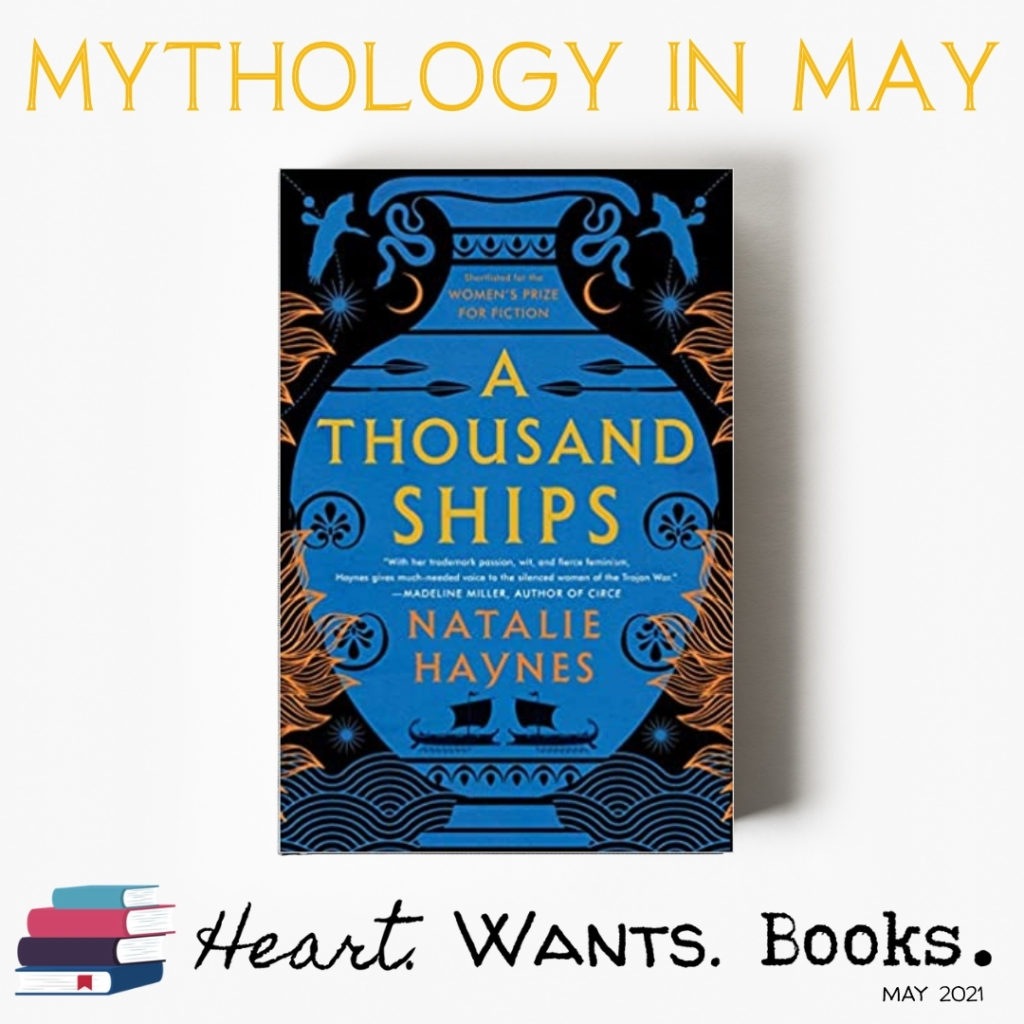
PLEASE SUPPORT US WHEN YOU SHOP BY FIRST CLICKING ON THE IMAGES BELOW:

